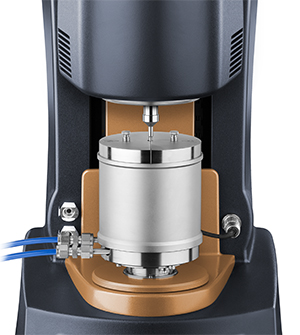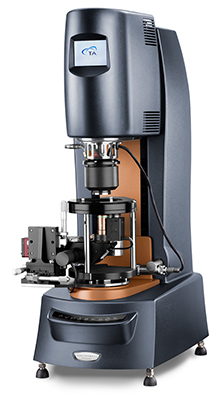New Magneto-Rheology Accessory from TA Instruments
New Castle, Delaware, USA. September 24, 2015 – TA Instruments introduces an all new system for characterization of magneto-rheological (MR) fluids. The Magneto-Rheology Accessory for the Discovery Hybrid Rheometer enables parallel plate and cone-plate rheological measurements under the influence of a controlled field at temperatures as high as 170 °C and fields as high as…
Details












